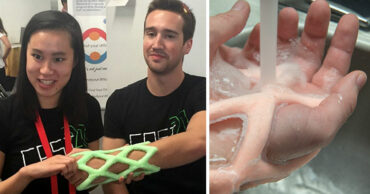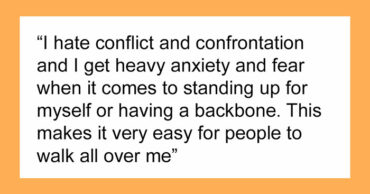
Show Me a Hero‘s first two episodes note Nick Wasickso’s rise to the top of New York’s Democratic party, mostly observing it from the inside: while there are plenty of other stories to be told on the fringes of the series, the first two episodes are centered on Nick and how he manages to climb to the top of the Yonkers political chain, not through noble intent, but through blind ambition. This week’s pair of episodes, “Part Three” and “Part Four”, are a lot more about the supporting cast around Nick, giving life to the city council’s various debates about the townhouses being fought over around the city, and the people trying to inhabit them when they finish being built.
Of course, episodes three and four still keep their intense focus on Nick Wasickso’s life, and the slow mental degradation that came with his rise and fall. After finally getting the city to comply with the court’s decision with a 5-2 vote (during the show’s most dramatic, tension-filled moment yet), Nick’s life begins to turn upside down, the cracks beginning to form in Nick’s psyche. The Maalox use is steadily increasing, and as his biggest political opponent (Hank Spallone) shifts parties to align himself for battle with Nick in the fall election (rather than the spring primary), Nick finds himself losing the support of the city around him. He drives through a Yonkers full of Spallone campaign signs and destroyed ‘Wasickso for Mayor” posters, and can’t get anyone from the Democratic part in the state (primarily Mario Cuomo) to help back him for a second run.
In the fall, he loses the election and becomes aimless. Like many victims of the political machine, that fleeting sense of power and accomplishment is fleeting, and one Nick openly desires to have back. While Oscar Issac’s performance shines in every scene, it’s his quietest moments in “Part Four” where the character really comes to life: Wasickso, never a man driven by ideology, finally gets to see his project come to fruition, albeit on the sidelines of the political world he’s become addicted to. While he can enjoy the accomplishment of seeing the new townhouses built, he still hasn’t been able to move on from his narrow defeat in the state election: being nominated for a courage award for his work on the housing bill (that he initially opposed, of course) only exacerbates his desire to be a politician again, to seek out the fame and adoration that comes with the job.
And it’s that search where Nick’s character really gets his tragic arc (as a journalist notes via F. Scott Fitzgerald: “Show me a hero, and I’ll write you a tragedy” ): he’s a man defined by his blind, American ambition to move upward and forward. Success is both something earned, and something tied into destiny: Nick buying the rundown house under the guise of his dreams for its future are a nice parallel to Yonkers itself, a sentiment echoed by Oscar Abraham when he talks about how solving one problem in the city only propagates another problem to rise to the surface. Politics in that sense, is always a losing game: an ever-increasing population and ever-changing set of social and economic concerns see to that, ensuring that the gossip and backdoor deal-fueled politics machine never stops turning. And as a system, it can’t even function properly on its own: Nick notes to the judge how politics is a popularity test, not something noble to attach causes and ideologies to (except when they neatly align with your political agenda at the moment, of course), a sentiment brought to life for Mary, whose loyalty to Spallone was duly noted during election day, and then tossed aside when Spallone realized power was more important than retaining his pledge to the people of the city not to segregate.
Detailing the dirty, broken political system of America is something David Simon and William Zorzi revel in: their ability to find the irony in Wasickso’s endorsement of the bill, and apply it to everything else in his life, and the world around him. Some have said the background stories of Show Me A Hero feel disconnected from the main, politically-charged narrative: but both parts three and four reveal these characters (like Billie the new mother, Norma the former home aid going blind, and Doreen the newly-addicted to crack) as people who could both benefit from the new townhouses being built, and as humans who’ve suffered from the city’s inability to get the houses built. Doreen, as predictable an arc as it is, is a powerful component of this: while we see characters like Alma fight for her children to come back to the DR, seeing Doreen stop fighting to improve her life and her family’s and fall into the growing crack epidemic is heartbreaking in its irony: had those townhouses been getting built when they were supposed to, she may have had a reason to hold onto hope after the father of her child was killed. Without hope and direction, however, those left to wander aimlessly are destined for darkness – a pattern we start seeing repeat with Nick himself as “Part Four” begins drawing to a close.
That’s not to say Nick is becoming a crack addict: rather, Show Me A Hero derives the connection between Doreen and Nick in their lack of direction in life. Rather than drugs, Nick’s become addicted to politics, and can’t function without it: he tries to repair his house or visit his father’s grave, and can’t seem to shake the elusive feeling he’s left something on the table as a politician – and more importantly, that everyone who helped him rise to the top is leaving him in his downward spiral. In the series’ rawest emotional moment, he lies in bed with his fiance and asks her “Am I lovable?”
In that moment, Show Me A Hero reveals its deepest pathos: beyond a story about a city fracturing over racial tension, and the rise and fall of a young politician, Show Me A Hero is a story about a man unable to reconcile with his dead, judging father (his ghost leers at Nick across the grave yard at one point), and chasing that acceptance anywhere else in life, to less-than-stellar results. Nick’s journey as a son is severely understated, but essential to the philosophies driving the series as a whole: while all politicians have their political self-interests, it’s often those that are the most personal that drive us – and when we come up short on those counts, can lead to the devastating psychological effects we begin seeing in Nick as “Part Four” draws to a close, and a listless Nick tells his dead father he doesn’t know what to do with his life. Nick Wasickso may not be a ‘hero’ in the traditional sense of the word, but his story is a classic Greek tragedy, one that continues to play out in unbelievably captivating fashion in the middle chapters of David Simon’s latest masterpiece.
Other thoughts/observations:
– Forever a man of hope, Nick convinces his girlfriend they should buy the broken home Nick’s been staring at for years: “It could be a beautiful home” fits right along nicely with the fantastical notion of public housing becoming a beacon for the city’s assertions that everyone deserves the same right to economic advancement and life improvement.
– Carmen’s story may feel the most disconnected of them all, but her journey to bring her children home and save them from the hood life is powerful, even in isolation.
– Love how Sussman nicknames himself “The Hebrew Hammer”.
– You can tell things are going bad in your political career if a cap on the city’s fines at $1 million/day is a “good thing”.
– “Do we want this bill to succeed or not?”
– Love how Billie refuses to let the father of her child be a baby anymore: she tells him to come find out if her mother is home, rather than sheepishly stand outside and make promises about what he’ll do for the baby (he ends up in prison anyway, his soft demeanor coming undone during his stay at Rikers).
– The racial tension in Yonkers comes from both sides, a mutual distrust: even Norma admits she’d rather live in her project building than surrounded by a bunch of white people angry with her for moving in.
[Photo via HBO]
 Follow Us
Follow Us




